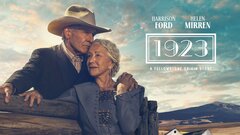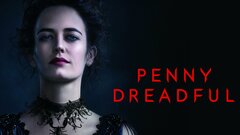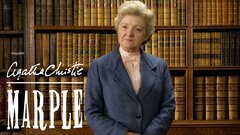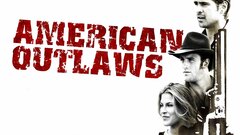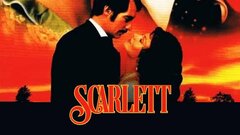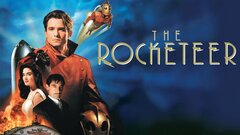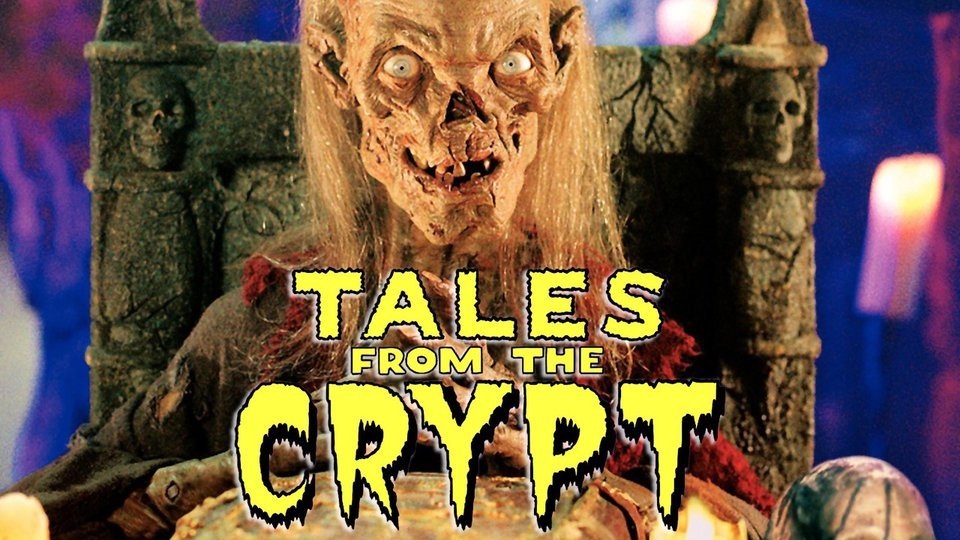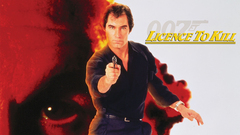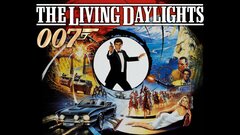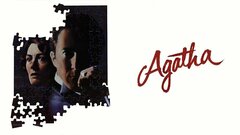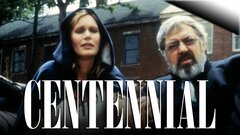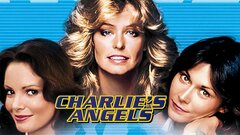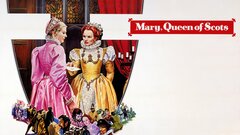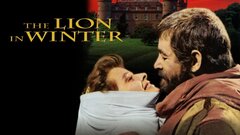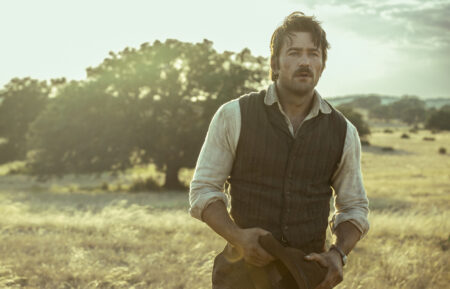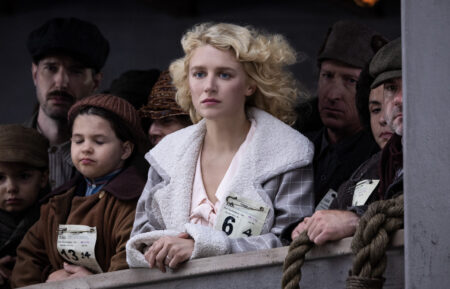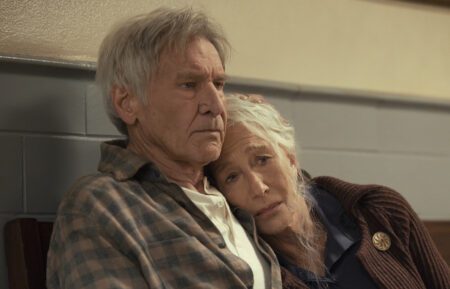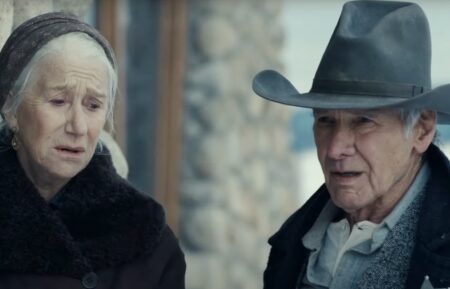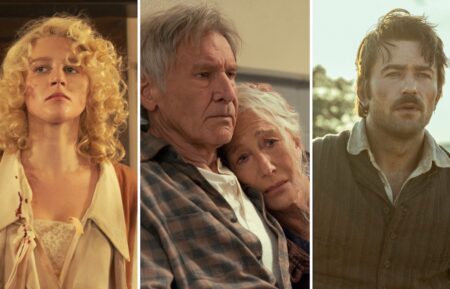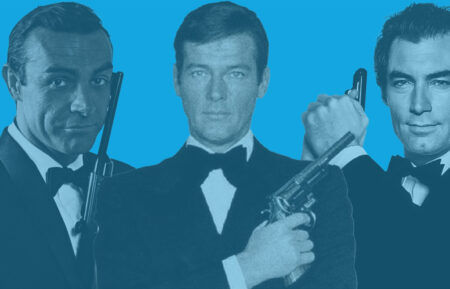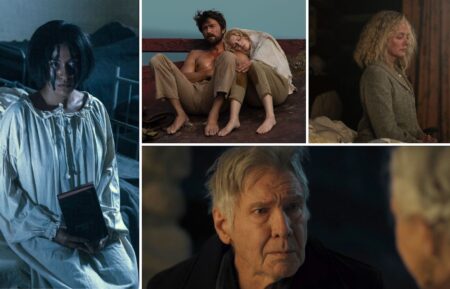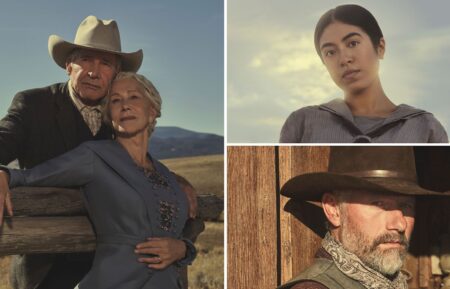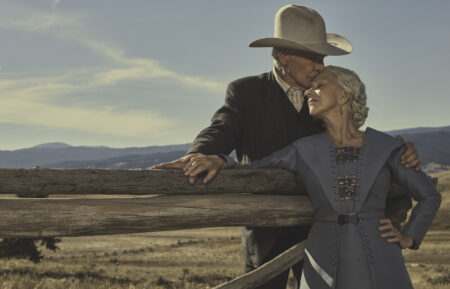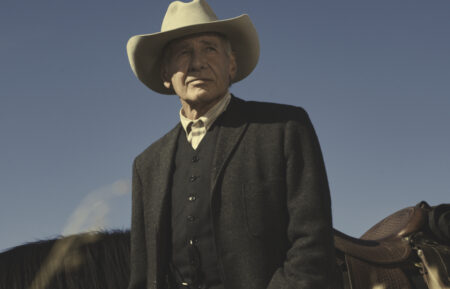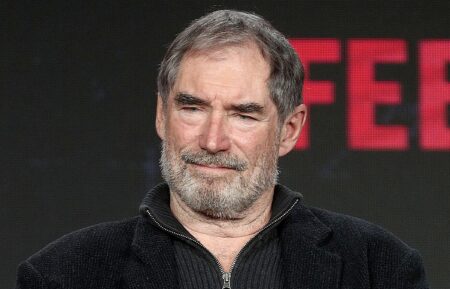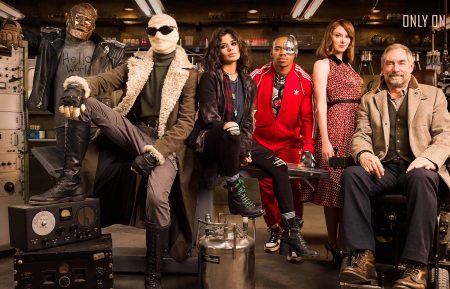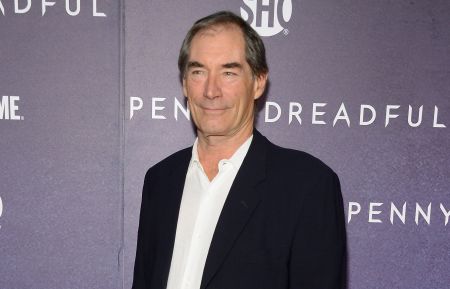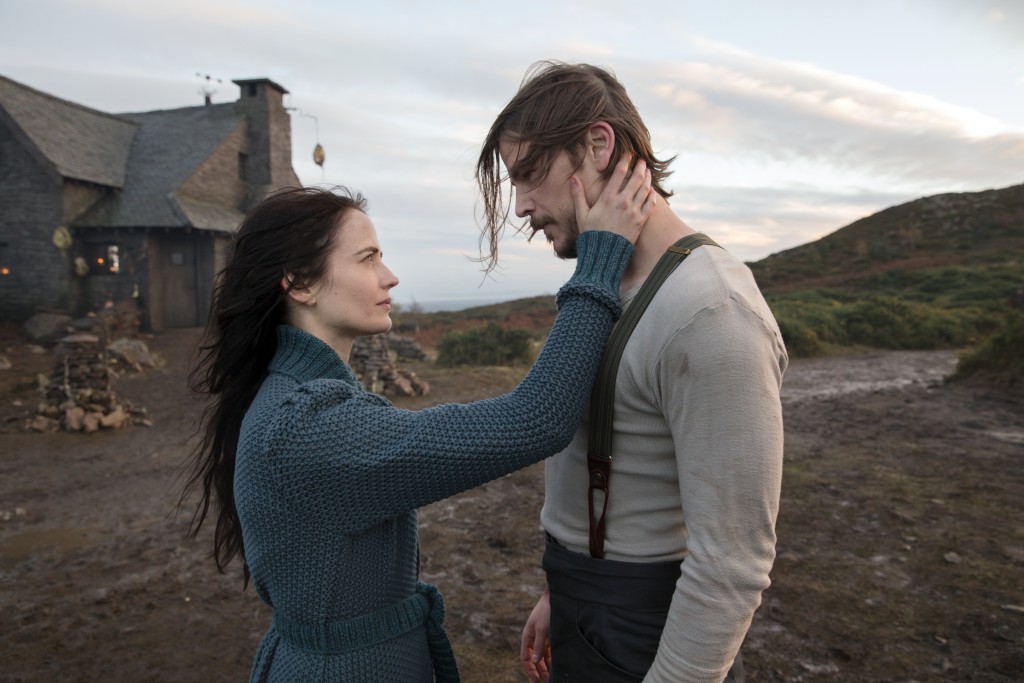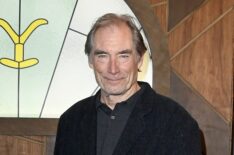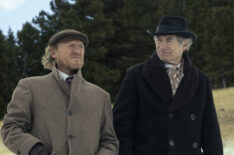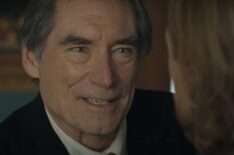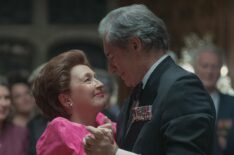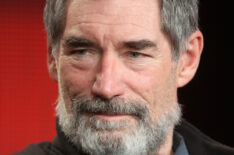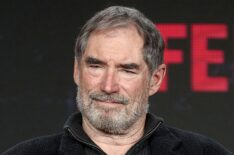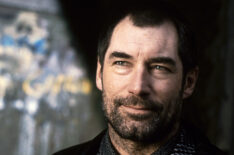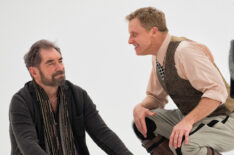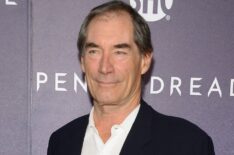After establishing himself on stage as an accomplished Shakespearean performer, actor Timothy Dalton forged a successful career on screen, typically in roles as dashing period men, until he reached international stardom as the fourth person to play James Bond. While his tenure as 007 was short-lived, Dalton was credited with returning the character to his roots following a decade of campy humor during the reign of Roger Moore.
After first being offered and ultimately turning down the role in the late 1960s following Sean Connery's first departure, he made his first appearance as Bond in "The Living Daylights" (1987), which helped bring the franchise back to box office prominence after a steady decline earlier in the decade. Dalton followed with the decidedly darker "License to Kill" (1989).
Prior to his stint as England's most famous fictional spy, Dalton excelled in stage productions of "Coriolanus" (1964), "As You Like It" (1966) and "King Lear" (1972), while making his onscreen mark in "The Lion in Winter" (1968), "Flash Gordon" (1980) and "Jane Eyre" (BBC, 1983).
Following a legal dispute between the production company behind Bond and the studio, Dalton left the franchise due to an expired contract and focused once again on leading roles in period films like "Scarlett" (CBS, 1994) and "Cleopatra" (ABC, 1999). Having displayed his creative diversity with "Hot Fuzz" (2007) and "Toy Story 3" (2010), Dalton proved that he was one of cinema's great, often underappreciated, performers.
Born on March 21, 1946 in Colwyn Bay, Wales, Dalton moved with his family to Balper, Derbyshire, England with his family when he was four years old. Though on the path to a military career as an Air Cadet - much like his father, who served in the clandestine Special Operations Executive during World War II - Dalton pivoted toward acting when he was 16 after seeing a transformative performance of "Macbeth." He soon joined the National Youth Theatre, spending three summers with the group before he gained entry into the famed Royal Academy of Dramatic Arts.
Following two years of study, Dalton quit RADA and turned professional at age 22 with his debut in "Coriolanus" (1964) at London's Queen's Theatre. He next joined the Birmingham Repertory Theatre, where under the direction of Tony-winning English stage director, Peter Dews, Dalton excelled in countless Shakespearean productions and period dramas, including a West End performance of "As You Like It" (1966). From there, he made his big screen debut as King Philip of France, brother to the mistress of King Henry II (Peter O'Toole), Princess Alais (Jane Merrow), in "The Lion in Winter" (1968).
Just the first of several period dramas that would come, "The Lion in Winter" set a familiar pattern for Dalton's career, which became marked by well-suited roles as swashbucklers, royalty and historical leading men. He had his first brush with potential superstardom when he was asked in 1968 by produced Albert Broccoli to replace Sean Connery as James Bond, after the latter claimed that "You Only Live Twice" (1967) would be his last film in the role. But the 22-year-old Dalton turned down the initial offer on the grounds that he felt too young to play the part. Meanwhile, Dalton appeared in a score of British films, including a remake of "Wuthering Heights" (1970), Ken Hughes' lavish historical biopic "Cromwell" (1970), and the acclaimed "Mary, Queen of Scots" (1971), which paired him with eventual real-life companion, Vanessa Redgrave.
Aside from a supporting role opposite Ava Gardner in "Permission to Kill" (1975), he largely remained a theater actor throughout the rest of the decade, turning in performances of "King Lear" (1972), "Henry V" (1972) and "Henry IV, Parts 1 & 2" (1974). A few years later, Dalton appeared in his first American film, "Sextette" (1978), a rather sad return to the silver screen for an 85-year-old Mae West, who attempted to revamp her 1930s-era sex kitten mystique by unconvincingly playing a 29-year-old coquette. Despite putting up a brave front, Dalton was positively lost in his quasi-love scenes with West.
Dalton fared better in his next major role, playing the noble Prince Barin in Mike Hodge's campy sci-fi cult hit, "Flash Gordon" (1980). An over-the-top action-packed space opera, "Flash Gordon" provided an excellent showcase for veteran stage hams to chew the scenery. Though more restrained in his own performance, Dalton's turn as the suave and dignified Prince Barin fit beautifully, serving as a steadying anchor to all the fun. Dalton maintained high visibility, playing the title role opposite Lynn Redgrave in the British-made feature adaptation of Shakespeare's "Antony and Cleopatra" (1981), while offering a co-starring turn as Boy Capel to Marie-France Pisier's Coco Chanel in "Chanel Solitaire" (1981). He also starred in a number of television miniseries and made-for-television dramas like "Jane Eyre" (BBC, 1983), in which he portrayed the wealthy Edward Fairfax Rochester, who falls in love with the titular governess of Thornfield Hall (Zelah Clarke).
Following the three-part miniseries, "Mistral's Daughter" (CBS, 1984), Dalton returned to the big screen as an 18-century doctor who relies on two disreputable grave robbers (Jonathan Pryce and Stephen Rea) for fresh cadavers for his teaching hospital in the little seen horror thriller, "The Doctor and the Devils" (1985).
After starring opposite a sultry Joan Collins on the soap opera "Sins" (CBS, 1986), Dalton was once again mentioned to become the next James Bond. This time, however, the actor accepted the role following Roger Moore's debacle with "A View to a Kill" (1985), and brought with him an insistence that the character return to a darker, more serious tone following Moore's rather campy tenure. Dalton made his screen debut as Bond in "The Living Daylights" (1987), which saw 007 successfully aid the defection of a Russian officer (Jeroen Krabbe), only to see him abducted while becoming involved with a mysterious cellist (Marym d'Abo). The film was an international hit, grossing nearly $200 million worldwide while becoming a success in the U.S., where receipts for the previous three Bond flicks had progressively slipped. Unfortunately, not everyone appreciated the change - reviews of Dalton's performance were all over the board. While many fans applauded the darker, grittier Bond, an equal amount disliked the change. After a decade of Roger Moore's tongue-in-cheek take on the character, detractors felt that Dalton's brooding Bond felt like too radical of a departure, despite the fact it was a return to novelist Ian Fleming's original vision of 007.
Unswayed by the dissent, Dalton returned as the brooding Bond in "License to Kill" (1989). Overwhelmingly considered the darkest, most violent of the Bond series, "License" featured Bond literally being pushed to the edge, defying the law, his government and many fans expectations - all in the name of avenging an injury done to friend and DEA agent Felix Leiter (David Hedison). "License to Kill" failed to perform as well at the U.S. box office, in large part due to a lackluster marketing campaign. Still, the film represented a unique entry in the 007 celluloid mythos and was viewed by many as being the quintessential Dalton-as-Bond film. Meanwhile, a legal battle erupted between the EON Productions and MGM/UA over ownership issues that lasted four years, during which time Dalton's contract - which still had three pictures left - expired. Having finally been fed up waiting on the sidelines, Dalton announced that he would not be returning to the series, even though development for what became "GoldenEye" (1995) was underway. All parties agreed to part amicably and a search for a new Bond commenced.
Once the Bond fiasco was over, the actor went back to playing debonair men from days of old. He was cast as Rhett Butler opposite Joanne Whalley-Kilmer's Scarlett O'Hara in the major miniseries, "Scarlett" (CBS, 1994). Adapted from Alexandra Ripley's novelized sequel to Margaret Mitchell's Gone with the Wind, the overblown production was shredded to ribbons by critics. Proving that Clark Gable was no easy act to follow, reviews on Dalton's performance were decidedly mixed at best.
He returned to the big screen in "The Beautician and the Beast" (1997), a lightweight romantic comedy co-starring Fran Drescher, while turning to more serious fare with the political drama, "The Informant" (Showtime, 1998). He next portrayed Julius Caesar in the television miniseries, "Cleopatra" (ABC, 1999), which starred Leonor Varela as the titular last pharaoh of Egypt and Billy Zane as Marc Antony. After playing a small town sheriff in the made-for-television crime thriller, "Made Men" (HBO, 1999), he was a Jesuit priest still suffering from the traumas of World War II, who must save the soul of a boy (Jonathan Malen) possessed by a demon in "Possessed" (Showtime, 2000).
Following another small screen movie, "Time Share" (Fox Family Channel, 2000), Dalton portrayed Allan Pinkerton, who doggedly pursues Jesse James (Colin Farrell), Cole Younger (Scott Caan) and the rest of the James Gang in the critically dismissed Western, "American Outlaws" (2001). Dalton delivered a fitting parody on his James Bond persona, playing an actor playing a spy who really is a spy in the animated-live action hybrid "Looney Tunes: Back in Action" (2003). On television, he portrayed Theban general Amphitryon in "Hercules" (NBC, 2005), while on the big screen he had a co-starring role in the Simon Pegg comedy, "Hot Fuzz" (2007).
After laying low for a time, Dalton re-emerged to voice Mr. Pricklepants in the hit animated sequel "Toy Story 3" (2010). Later that year, he received some unwanted attention during the much publicized revelations that Mel Gibson had physically assaulted Dalton's ex-girlfriend, Russian singer Oksana Grigorieva, with whom he had a son, Alexander. Several audio recordings were released of Gibson ranting and allegedly beating Grigorieva; on one such recording, Gibson was heard briefly jabbing at Dalton, whom Grigorieva considered to be a good father - the implication being that Gibson was not. When asked by the tabloid media for his opinion on the matter upon visiting his son and ex-girlfriend, Dalton offered a firm "no comment." Meanwhile, Dalton was Chief Inspector Jones opposite Johnny Depp and Angelina Jolie in the critically derided romantic thriller "The Tourist" (2010), and delivered a highly-praised turn as the badass Russian agent, Alexei Volkoff, on the fourth and fifth seasons of the cult comedy-drama "Chuck" (NBC, 2007-2012).

